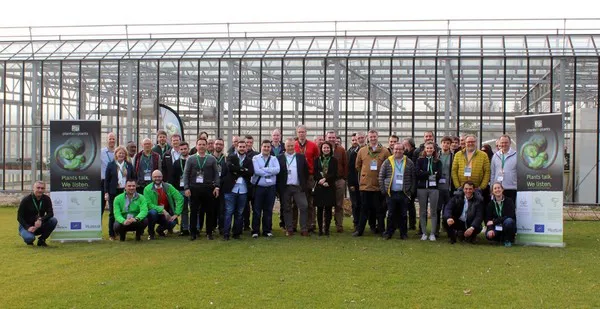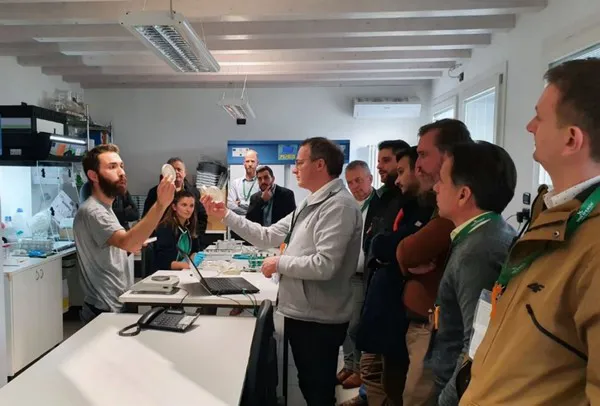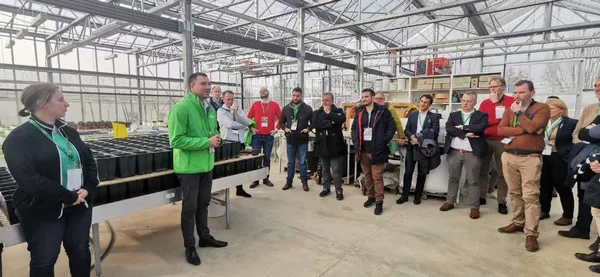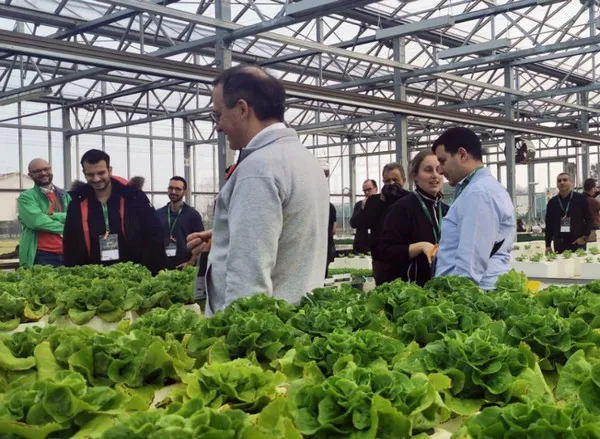LandLab Italy and Van Iperen International, the Dutch producer of specialty fertilizers, have joined forces in a new project, assisted by James Hutton Institute, University of Padova, Euroliquids and Van Iperen. The project, which is called LIFE Plants for Plants, focuses on a new generation of organic biostimulants for crop growing, next to seaweeds, amino acids and humic acids. Trial results in 5 different European countries show improved water use efficiency, nutrient use efficiency and reduced sensitivity to diseases. During the next two years, the products will be demonstrated in these and six other countries in the EU. Plants for Plants emphasizes that their biostimulants will be suitable for both conventional and organic agriculture. The project was granted a contribution by LIFE, the EU’s funding instrument for the environment and climate action.

"Plants talk, we listen"
The Plants for Plants project discovery is about what plants already knew for millions of years: the diversity of nature proves to be the best context for plants to prosper and overcome diseases. The task that lay ahead was to blend the ability of nature into the everyday practice of agriculture. Adriano Altissimo of LandLab explains: “Firstly, we figured out what the crop lacked. Then we looked for other species that had already acquired the properties that were needed. We then took a tailored extract and applied it to the crop through fertilization programs. By doing so, we were able to trigger specific reactions in the crop.”

Reducing inputs while boosting crop vitality, quality and production
The plant-derived biostimulants are able to enhance crop resource efficiency and significantly reduce the input of nutrients, water and pesticides. During the next two years, the Plants for Plants project will produce and test a new generation of biostimulants. The pilot will focus on water, phosphorus and crop fortification efficiency. The test area of the European pilot will be 220 hectares in 2020; 90 hectares of which will be treated with the new biostimulants. The area will be growing to 1,700 hectares during 2021. The project was rewarded an EU contribution of € 1.6 million on a total project cost of € 3 million.

P4P Club kick-off meeting
The first Plants for Plants outcomes of this joint work were presented at the 1st P4P Club and LandLab presented the three prototypes: LL002, LL004, and LL017. A total of 36 European partners from 14 different countries exchanged their professional expertise on the project and the trial results. Each P4P Club's members had the opportunity to share insights and views that could innovate in the future of this new generation of plant-derived biostimulants. Together they will take the next steps to start the demonstration trials across Europe - 12 countries, 5 different climatic zones - with the shared target to get the first products ready to enter the market in 2022.

For more information: Van Iperen
Van Iperen
www.iperen.com
